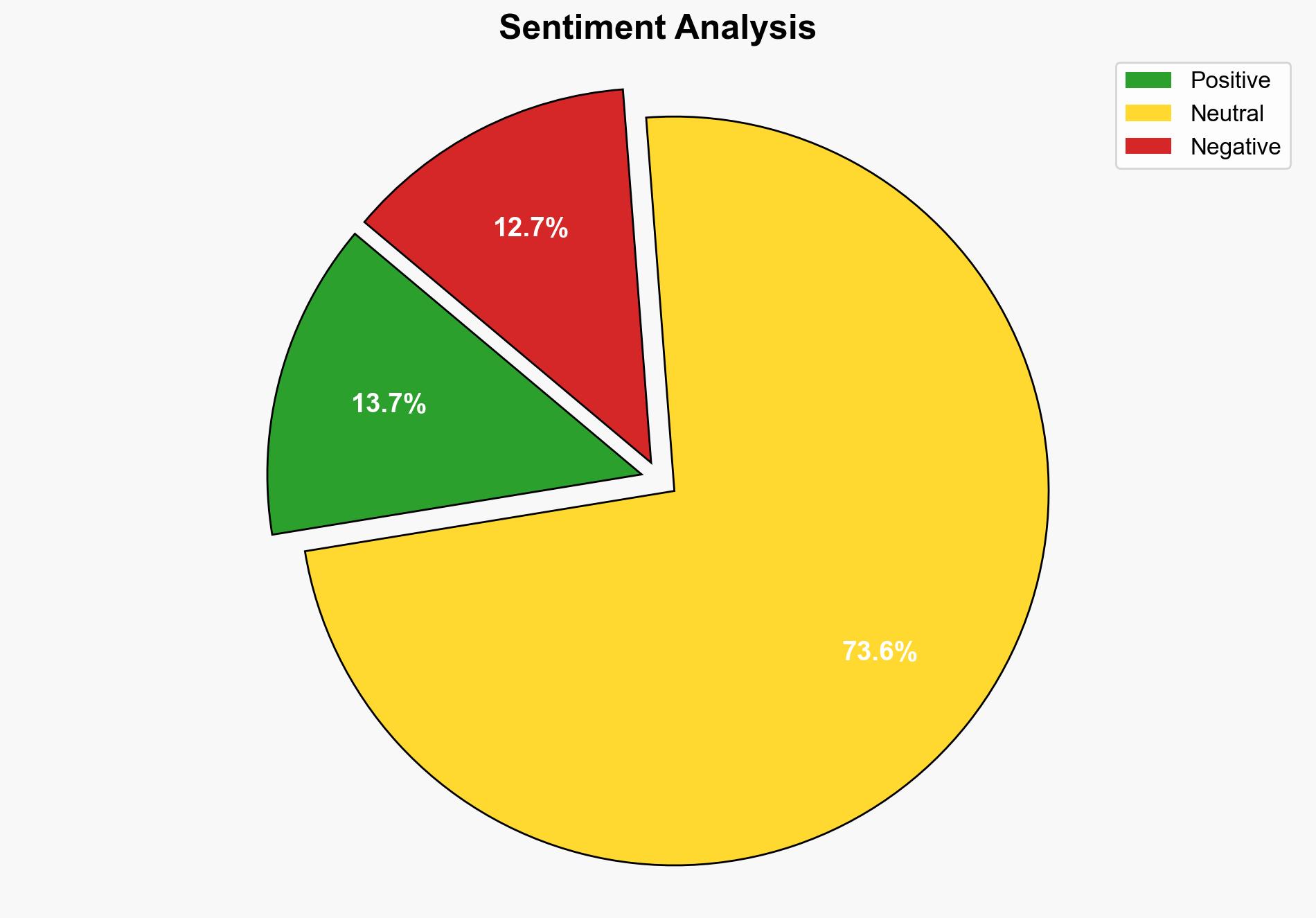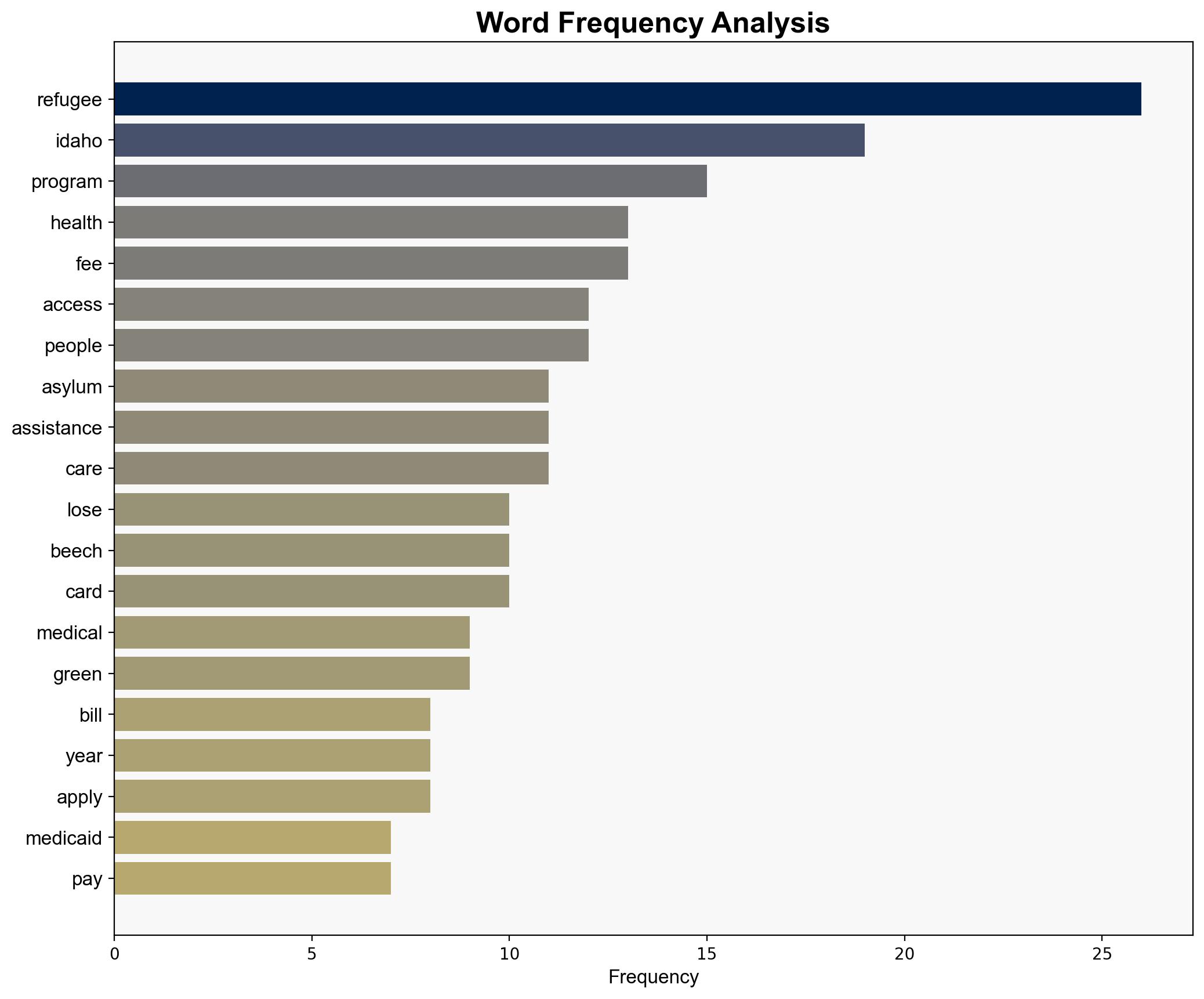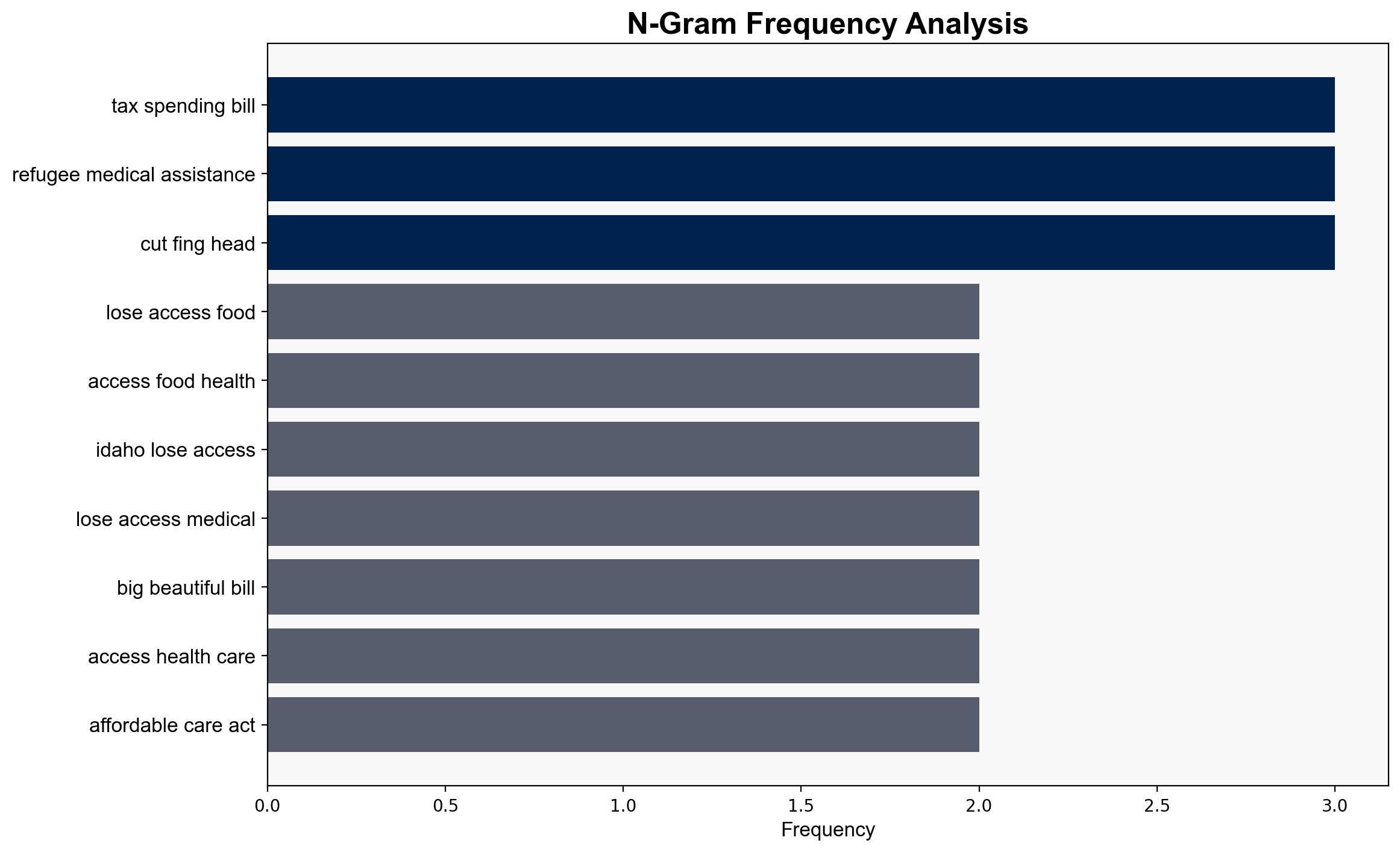Idaho Refugees to Lose Access to Food Health Benefits – NewsBreak – Newsbreak.com
Published on: 2025-09-06
Intelligence Report: Idaho Refugees to Lose Access to Food Health Benefits – NewsBreak – Newsbreak.com
1. BLUF (Bottom Line Up Front)
The most supported hypothesis is that the recent legislative changes leading to the loss of food and health benefits for refugees in Idaho are primarily driven by broader fiscal policy shifts rather than targeted anti-refugee sentiment. Confidence level: Moderate. Recommended action: Engage with federal and state policymakers to explore alternative support mechanisms for affected refugees.
2. Competing Hypotheses
1. **Hypothesis A**: The legislative changes resulting in the loss of benefits for refugees are primarily a consequence of broader fiscal policy adjustments and budgetary constraints.
2. **Hypothesis B**: The changes are driven by a deliberate policy shift aimed at reducing refugee support as part of a broader anti-immigration stance.
Using ACH 2.0, Hypothesis A is better supported by the evidence, including the mention of the “big beautiful bill act” as a major tax and spending bill, suggesting fiscal motivations. Hypothesis B lacks direct evidence of targeted anti-refugee intent in the legislative language.
3. Key Assumptions and Red Flags
– **Assumptions**: It is assumed that the legislative changes are uniformly applied without hidden biases. It is also assumed that the fiscal motivations are transparent and not a guise for other agendas.
– **Red Flags**: The lack of detailed guidance from federal partners and the absence of clear implementation strategies could indicate underlying bureaucratic inefficiencies or intentional obfuscation.
– **Blind Spots**: The potential impact on local economies and communities due to the sudden withdrawal of refugee support is not fully explored.
4. Implications and Strategic Risks
The removal of benefits could lead to increased economic strain on refugee families, potentially escalating into broader social issues such as increased poverty and reliance on informal support networks. This may also strain local resources and create tension between refugee and local communities. Geopolitically, it could affect the U.S.’s image as a welcoming nation for refugees, impacting international relations.
5. Recommendations and Outlook
- Engage with policymakers to advocate for temporary support measures while long-term solutions are developed.
- Monitor local community responses to anticipate and mitigate potential social tensions.
- Scenario Projections:
- Best: Rapid policy adjustment reinstates benefits, stabilizing refugee support.
- Worst: Prolonged benefit loss leads to significant socioeconomic issues.
- Most Likely: Partial restoration of benefits with increased reliance on local support networks.
6. Key Individuals and Entities
– Holly Beech
– Mike Crapo
– Chris Christensen
7. Thematic Tags
national security threats, economic policy, immigration policy, regional focus




